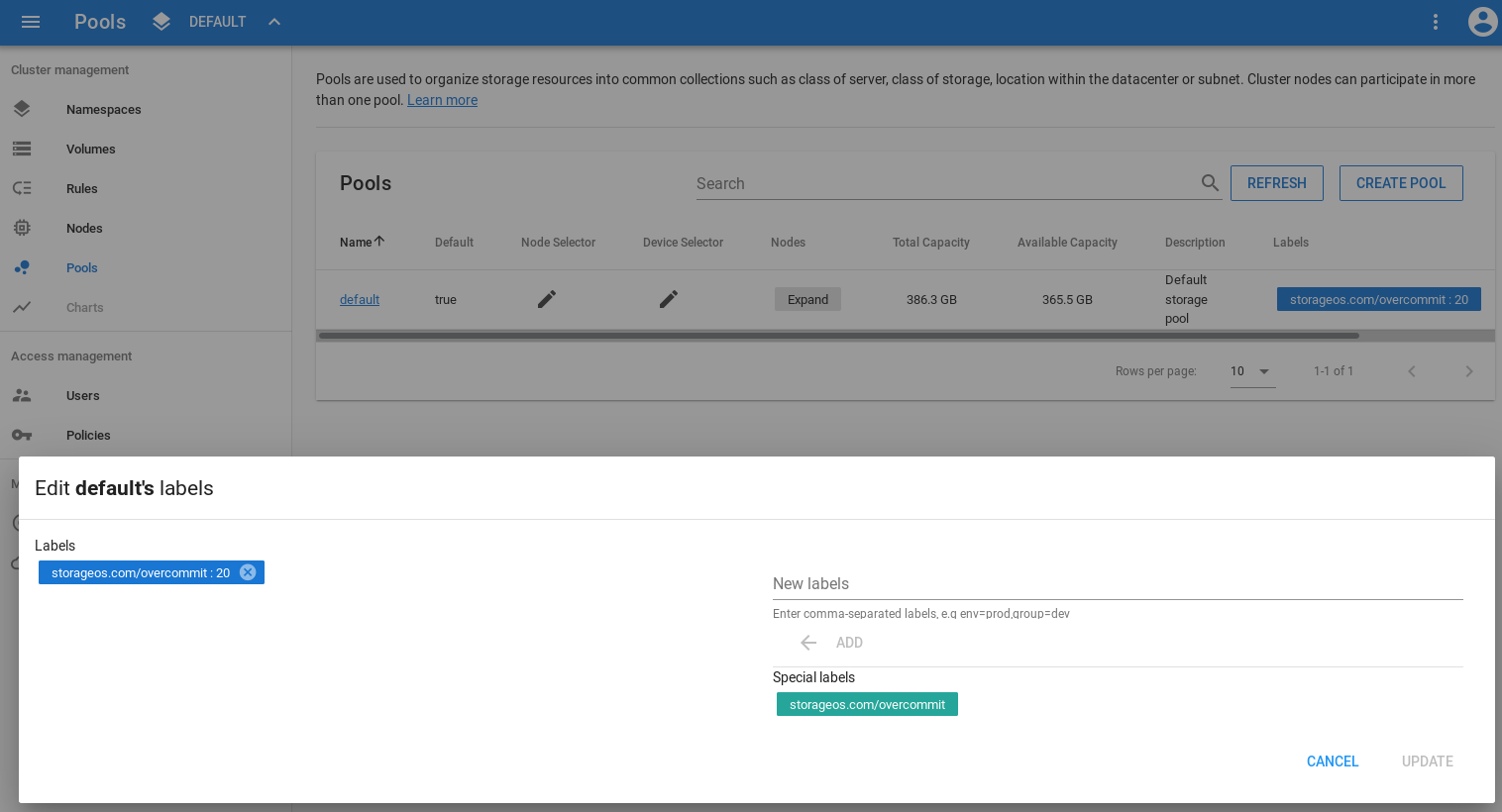Pool Overcommit
All volumes in Ondat are thinly provisioned and support inline compression. Therefore volumes only occupy capacity in the pool based on the data actually written to the Ondat volume. Ondat allows pools to be overcommitted. This allows the creation of volumes whose size exceeds the actual storage presented by underlying nodes. It can be useful if you anticipate writing a lot of data to a volume eventually but you do not wish to pay for storage that is not currently being used.
Given a 120GB pool comprised of 3 nodes with 40GB disks, then the maximum volume size is 40GB. To ensure deterministic performance and replication of writes, Ondat volumes must fit on a single node. Therefore if the pool is overcommitted by 20% then the new pool size is 144GB and the new maximum volume size is 48GB.
With hetrogenous node capacities it is important to keep in mind that a volume cannot be provisioned on a node without capacity that is equal to, or larger than the volume size.
For example given a 250GB pool, which is made up of a 200GB node and a 50GB node then Ondat will not collocate volumes whose total size is larger than 50GB on the 50GB node. If the pool is overcommited by 10% then volumes up to 55GB could be scheduled on the 50GB node, and volumes up to 220GB on the 200GB node.
Adding an Overcommit label to a pool
To add a overcommit label to a pool you can use the CLI or GUI.
With the CLI:
$ storageos pool update --label-add storageos.com/overcommit=20 default
The command above would set overcommit to 20% on the default pool.
$ storageos pool update --label-rm storageos.com/overcommit default
The command above removes the overcommit label from the default pool.
With the GUI:
Navigate to Pools and click on the labels row of the volume you would like to
edit. In the popup menu you can add and remove labels.

For more information on feature labels please see here.